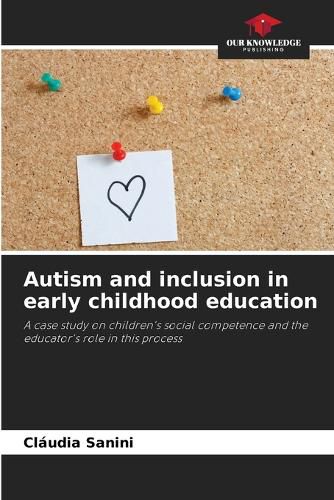Readings Newsletter
Become a Readings Member to make your shopping experience even easier.
Sign in or sign up for free!
You’re not far away from qualifying for FREE standard shipping within Australia
You’ve qualified for FREE standard shipping within Australia
The cart is loading…






Studies on the interactive skills of children with autism spectrum disorder (ASD) and their peers with typical development, in school inclusion situations, are still scarce. Therefore, the social competence profile of a child with ASD in early childhood education was investigated in both classroom and playground contexts. The classroom was the most favourable environmental context for the child's expression of social competence, pointing to the possible benefit of the mainstream school as a context for developing the social competence of children with ASD. With regard to the educator, we investigated her beliefs about the student with ASD, their influence on her teaching practice and any changes in her sense of self-efficacy. In terms of beliefs, there was an increase in the ability to reflect on information about ASD and a change in expectations about the student's development and learning. Changes in the sense of self-efficacy were evidenced by the understanding of the child's responses to certain practices and the recognition of one's own capacities as an educator, bringing implications for the design of training activities for early childhood teachers.
$9.00 standard shipping within Australia
FREE standard shipping within Australia for orders over $100.00
Express & International shipping calculated at checkout
Studies on the interactive skills of children with autism spectrum disorder (ASD) and their peers with typical development, in school inclusion situations, are still scarce. Therefore, the social competence profile of a child with ASD in early childhood education was investigated in both classroom and playground contexts. The classroom was the most favourable environmental context for the child's expression of social competence, pointing to the possible benefit of the mainstream school as a context for developing the social competence of children with ASD. With regard to the educator, we investigated her beliefs about the student with ASD, their influence on her teaching practice and any changes in her sense of self-efficacy. In terms of beliefs, there was an increase in the ability to reflect on information about ASD and a change in expectations about the student's development and learning. Changes in the sense of self-efficacy were evidenced by the understanding of the child's responses to certain practices and the recognition of one's own capacities as an educator, bringing implications for the design of training activities for early childhood teachers.